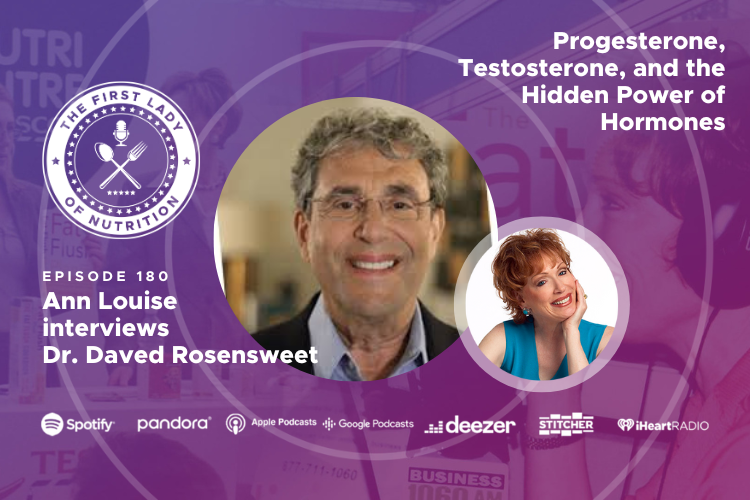 Balance blood sugar and foster friendly bacteria to protect your health.
Balance blood sugar and foster friendly bacteria to protect your health.
Most people realize that Type 2 diabetes is an underlying factor in heart disease. But did you know that scientists are increasingly finding an association between diabetes and cancer?
New evidence presented at an American Diabetes Association/American Cancer Society conference linked diabetes with cancers of the breast, colon, liver, pancreas, bladder, and rectum. “Traditionally, there hasn’t been much overlap between research in cancer and diabetes,” says Edward Giovannuci, MD, ScD, co-chair of this consensus report group. “But recently it’s become clearer that there are fascinating links between the two.”
Blood sugar imbalances and inflammation appear to be most the direct links between diabetes and cancer. While aging, poor diet, and obesity are common risks for both diseases, other possible links include environmental pollutants like DDE (a DDT byproduct), PCBs, and heavy metals like mercury.
“No matter what science ultimately reveals,” says Alice Bender, RD, at the American Institute for Cancer Research, “we already know what we need to do to lower risk” for both diseases. “Eat a healthy, varied, predominantly plant-based diet, be physically active every day, and maintain a healthy body weight.”
Interesting new research adds one more protective factor—beneficial bacteria. A study by the Spanish National Research Council shows that gut microbiota “may regulate body weight by influencing the host’s metabolic, neuroendocrine, and immune functions.”
While an unhealthy balance of microbes in the digestive tract is inflammatory, “specific probiotics, prebiotics, and related metabolites” appear to “exert beneficial effects on lipid and glucose metabolism” as well as satiety and inflammation, these scientists conclude.
Other research at the French National Institute of Health & Medical Research indicates that probiotics not only help fight metabolic syndrome (a cluster of prediabetic risk factors—obesity, particularly around the waist, blood pressure about 120/80, high triglycerides, and insulin resistance)—but also reduce inflammation and improve insulin metabolism. And numerous studies suggest that probiotics help protect against many of the very same cancers linked to diabetes, particularly breast, colon, and bladder cancers.
Dr. Ann Louise’s Take:
For many years, I have maintained that probiotics represent the next wave of health and healing. The protective value of probiotics in Type 2 diabetes can also be explained via the vitamin K2 connection.
How?
For starters, friendly flora synthesize vitamin K2, which in turn reduces the risk for diabetes. More specifically, research in the journal Diabetes Care shows that every 10 microgram (mcg) increase in vitamin K2 translates into a 7% reduction in the risk for Type 2 diabetes, most likely due to its suppression of inflammation.
Most Americans don’t get enough of this crucial form of vitamin K these days. Making up 90% of vitamin K in the U. S. diet, K1 is available in leafy greens. But K2 is sorely lacking in the Western diet. And people taking anticoagulant medications (like coumadin and heparin) are often deficient in this form of vitamin K.
That’s why I recommend Flora-Key, which contains a proprietary blend of beneficial acidophilus and bifidus bacteria along with a microflora growth concentrate to foster friendly bacteria in the gut. This probiotic/prebiotic formula not only provides 6.5 billion beneficial bacteria per serving but also makes a great naturally occurring sweetener in unheated foods and drinks!
It can easily be added to smoothie, used as a sweetener of choice in frosting, or sprinkled on fruit and even cereal. While Flora-Key tastes sweet, the molecules are too big to be digested by the body as sugar. It won’t affect blood sugar or, for that matter, feed candida or other yeasts. It will, however, nourish and promote beneficial bacteria that can help promote weight loss and immune health.
For maximum therapeutic use adults can opt to take 1 teaspoon Flora-Key mixed in 6 to 8 ounces of water on an empty stomach 2 to 3 times daily. Children 12 and younger can take half the adult dosage.
For more tips on natural healing, please check out my latest iHealthTube videos at https://www.ihealthtube.com/aspx/search.aspx?sp=ANN+LOUISE++GITTLEMAN&displayType=videos.
Sources:
Fat Flush for Life
https://diabetes.webmd.com/news/20100616/why-does-diabetes-increase-cancer-risk
https://jama.ama-assn.org/cgi/content/short/303/24/2504
https://lpi.oregonstate.edu/infocenter/vitamins/vitaminK/
www.ivanhoe.com/channels/p_printStory.cfm?storyid=24511
https://www.ncbi.nlm.nih.gov/pubmed/20647401
https://www.ncbi.nlm.nih.gov/pubmed/20551014
https://www.ncbi.nlm.nih.gov/pubmed/20540826
https://www.ncbi.nlm.nih.gov/pubmed/20520982
https://www.ncbi.nlm.nih.gov/pubmed/19827333
https://www.ncbi.nlm.nih.gov/pubmed/19459724
https://www.ncbi.nlm.nih.gov/pubmed/18685507
https://www.ncbi.nlm.nih.gov/pubmed/17922945
https://www.ncbi.nlm.nih.gov/pubmed/17691905










